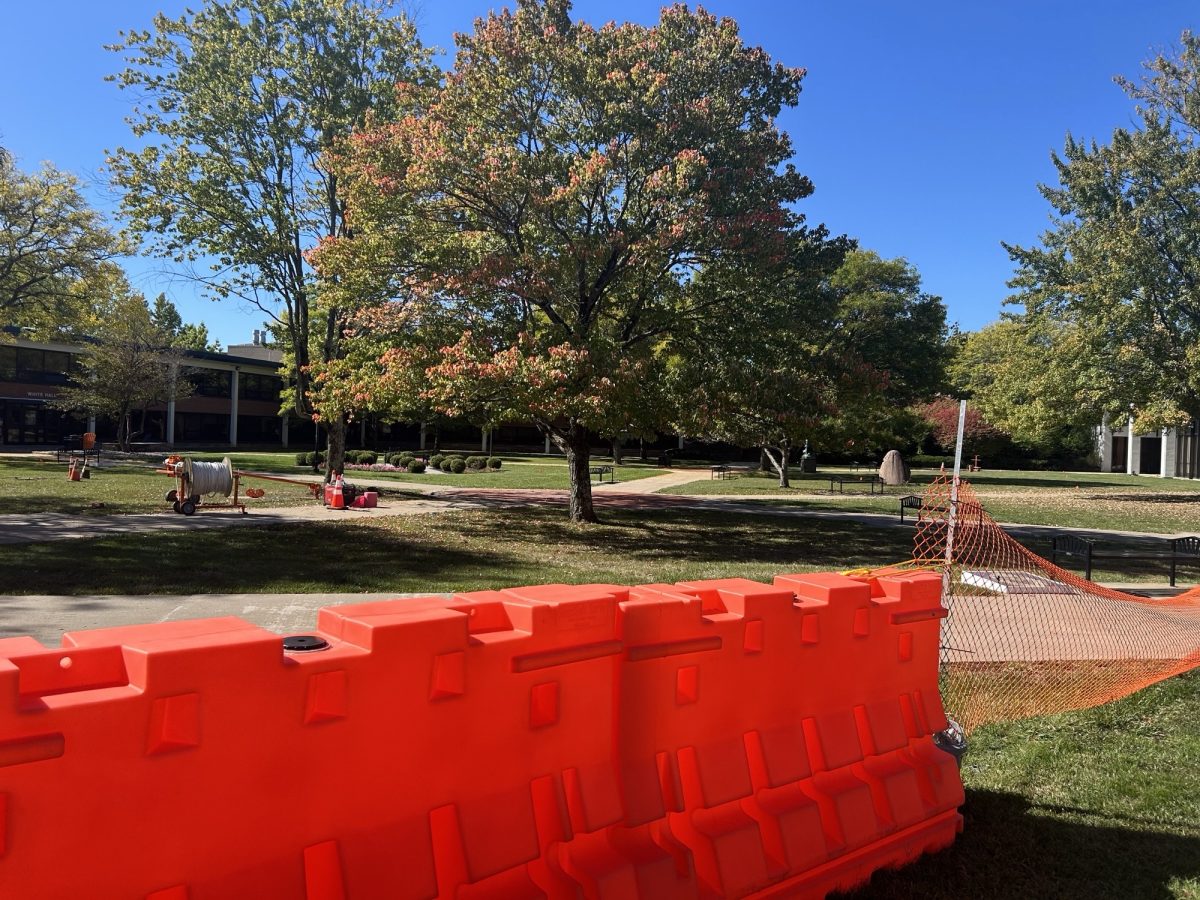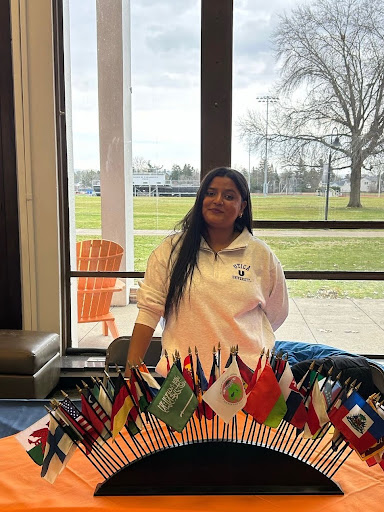J.N. Cheney is the Resource Sharing and Reserves Coordinator at the Frank E. Gannett Library at Utica University.
At one point in history, college campuses were considered bastions of political radicalism. Anti-war demonstrations, civil rights organizations, groups that were socialist or at least socialist adjacent, and more, characterized numerous aspects of campus life in the 20th century. Part of my mission as an aspiring historian is to shed light on these hidden kernels of radicalism in the Mohawk Valley that for whatever reason have been pushed to the margins. It may surprise many to see that Utica University at various points played a part in this radical tradition. Guest speakers with more radical worldviews graced the Utica campus.
In October of 1963, multi-time Socialist Party presidential candidate Norman Thomas held a talk in the Strebel Auditorium to what was described as a capacity crowd. Speaking at a meeting of the Utica College Chapel Club, Thomas provided a critique of capitalism wherein he claimed that the profit motive was the driving factor in the moral deterioration of society, detailing its negative impact on social life, due to the need to build profit, often, by any means necessary.
Thomas’s critiques came from his history as a socialist philosopher and his religious views, akin to the social gospel. He similarly spoke on the need to apply such critiques to things such as war and general United States politics.
The following year, Marxist historian Herbert Aptheker came to Utica to speak to two different senior seminar classes. Dr. Aptheker’s talk was entitled “On the Nature of Revolution: A Marxist View”, which was in line with the seminar’s very theme of “The Nature of Revolution.” Aptheker’s talk in essence spoke about the class dynamic of revolution throughout history, why violence has been a part of various social revolutions, and how revolutions from the Marxist perspective are primarily seen as entities built off of democratic spirits and intentions. He also spoke on the problems of moderation in politics when seeking actual change.
Radical talks in the 1960s were capped off with a visit from a representative of the Young Socialist Alliance (YSA), the youth group of the Socialist Workers Party (SWP) in April of 1969. The YSA’s Dan Rosenshine gave a lecture in Strebel discussing socialism in Cuba. More specifically, Rosenshine was a member of a delegation invited to Cuba to take part in the country’s celebration for the 10th anniversary of their revolution. Rosenshine spent five weeks in Cuba during this celebratory period. Though other radical socialist groups had a presence on campus, such as a short-lived chapter of Students for a Democratic Society (SDS), the SWP seems to be the most prevalent given that party representatives visited campus at least two more times.
In 1970, the SWP’s Clifton DeBerry came to Utica College during one of his election campaigns. Having served as the party’s presidential candidate multiple times, DeBerry threw his hat into New York’s gubernatorial race. Addressing an audience in the Frank E. Gannett Library, DeBerry presented his definition of Marxism and gave a historical overview of capitalism’s formation in the United States. DeBerry likewise laid out his presidential platform, declaring his support for the Women’s Liberation Movement, the connected struggles of Black and Puerto Rican people, a $3 minimum wage (the minimum wage in New York was $1.60 an hour), and an increase on income tax for those who made $25,000 a year. Adjusting for inflation, that would be over $213,000 in July of 2025, according to the U.S. Bureau of Labor Statistics’ inflation calculator.
The SWP’s final appearance at Utica College was in 1972. Linda Jenness and Andrew Pulley, the party’s presidential and vice presidential candidates, made a two-day appearance for their campaign in March of that year. Jenness and Pulley themselves weren’t interviewed and so far no transcript of any speeches have been found. Ernie Harsch, a spokesperson for the Young Socialist Alliance, was instead interviewed on behalf of the campaign. Harsch laid out what Jenness and Pulley would do if elected and spoke on the possibility of building socialism in the United States.
In 1975 there were two events of a radical character. In March of that year, the Black Student Union organized a “Black Cultural Week” which included a lecture on socialism and nationalism in the contexts of the struggles of the African diaspora. In December that same year, a lecture covering the clandestine activities of the CIA was presented by John Marks, co-author of the 1974 book The CIA and the Cult of Intelligence. Marks discussed the CIA’s covert meddling in other countries including plots to assassinate foreign leaders such as Chile’s Salvador Allende and Cuba’s Fidel Castro, funding and arming right-wing rebel groups in various countries, and illegally spying on people in the United States among other unsavory acts.
Finally, in 1993, founding member of the Black Panther Party (BPP) Bobby Seale gave a lecture in the Library Concourse. Much of Seale’s talk focused on how exactly he became involved in the BPP, his history of activism and agitation for revolutionary socialism and Black Nationalism, and reflections on how his time in the Party influenced his activism since his departure. Seale concluded his talk by urging people to get more involved with their community and to work collectively to battle the social ills that so many face in working-class and lower-income areas.
There’s a chance that other examples have fallen under the radar, but for now, this is as definitive of a list that could be put together. Claudia De La Cruz, presidential candidate for the Party for Socialism and Liberation in the 2024 election, visited colleges throughout New York as a part of her campaign, some of them in the upstate region. Utica was not one of them. Will there ever be radical voices on this campus again, even just visiting ones? Maybe it wouldn’t hurt to have such voices come around again given world, national, and even local events. Maybe some of them are already here and we just don’t know it.








































































































































Jeff Miller • Sep 27, 2025 at 9:10 am
Great piece. The two visits by famous community organizer Saul Alinsky are also worth digging into!